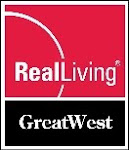Here is the second part of last week’s blog. It covers the effects of short sales on the borrowers. Questions 7 – 11.
II. Effect On Borrowers of Short Sales
Q 7. Does a short sale adversely affect a defaulting borrower's credit rating?
A Yes. Lenders will report the short sale as being settled for less than the full balance. This would show up on the borrower's credit report as a negative mark for seven years. (Cal. Civ. Code § 1785.13.)
Q 8. Suppose the borrower is late with his/her mortgage payments, causing the lender to begin the foreclosure process by filing a notice of default. Before the foreclosure sale occurs, the borrower pays the lender what is owed on the note. Could these activities appear on the borrower's credit report?
A Yes. The lender can report to a credit bureau receipt of any payments made 30, 60, 90 or more days after their due date. This may appear on a borrower's credit report as a "foreclosure in process," "foreclosure proceedings," "current was 30," or in some other way. Any such terms, or other similar reporting comments, harm that individual's overall credit rating.
Q 9. Is the method by which lenders report a short sale a negotiable item?
A Typically, no. The short sale is usually reported to credit reporting agencies as settled for less than the full balance. However, a borrower may try to negotiate this at the time the short sale is being arranged.
Q 10. Are there any special risks to borrowers when negotiating a short sale with their lender?
A Yes. In particular, REALTORS® who assist borrowers should be aware and warn their clients of one particular risk. If the borrower was less than completely honest when using the stated income method in applying for the loan, this information may become apparent to the lender when the documentation listed in Question 17 (such as tax returns and paycheck stubs) are submitted to the lender in the application for short sale approval. This may put the borrower at great risk of potential liability for their dishonesty.
Q 11. Are there any tax effects of a short sale?
A Yes. The tax implications for the borrower could be so significant that a short sale would not be in the borrower's best interest. Before a short sale is contemplated, it is strongly recommended that the borrower seek the advice of a professional tax advisor.
Generally speaking, any relief of indebtedness from a short sale, regardless of whether the loan is a recourse or nonrecourse loan, is taxed as ordinary income. There are, however, some exceptions to this rule that may benefit a taxpayer involved in a short sale. For more information on the tax implications of short sales, see the CAR legal article, Taxation of Foreclosures, Deeds in Lieu of Foreclosure, and Short Sales.
Generally speaking, any relief of indebtedness from a short sale, regardless of whether the loan is a recourse or nonrecourse loan, is taxed as ordinary income. There are, however, some exceptions to this rule that may benefit a taxpayer involved in a short sale. For more information on the tax implications of short sales, see the CAR legal article, Taxation of Foreclosures, Deeds in Lieu of Foreclosure, and Short Sales.
Next week will cover the licensing requirements for short sales. Don’t forget to leave a comment below.



No comments:
Post a Comment